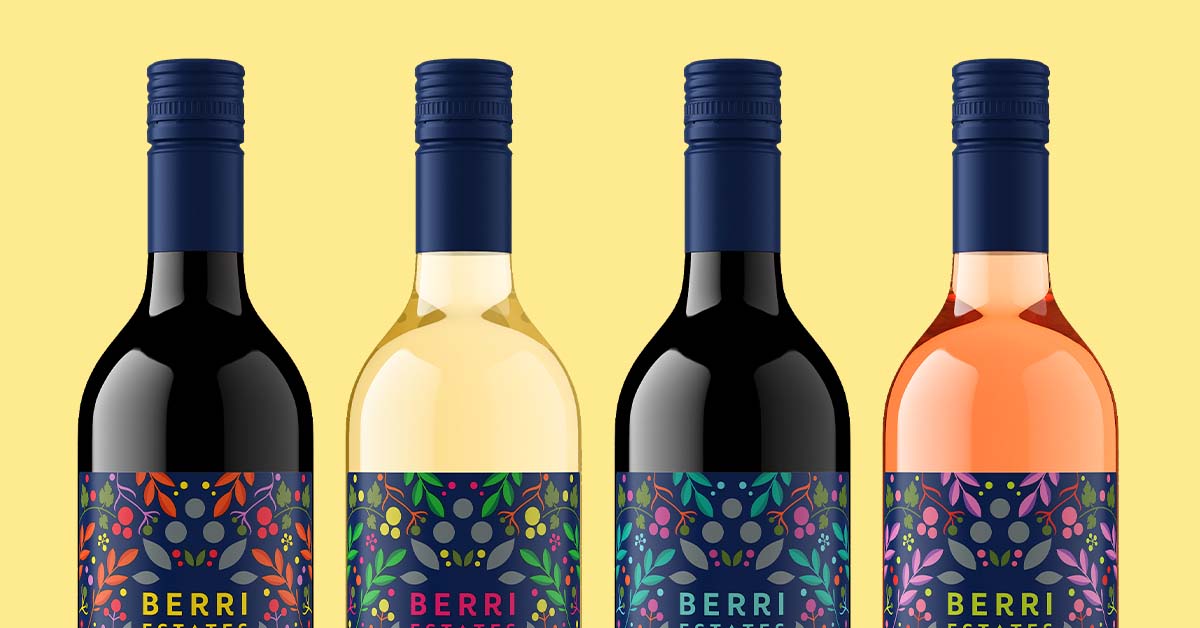Unlocking the potential of winery ecommerce in 2024
Discover the world of E-commerce trends for wine brands and embrace the digital landscape.

The wine industry is experiencing a digital transformation, with wineries embracing winery e-commerce to reach a wider audience and boost sales. Are you ready to unlock its potential in 2024?
It’s time to dive into the world of online wine sales, explore the challenges and opportunities, and discover the strategies that will set your winery apart from the competition.
Key takeaways
- Winery ecommerce has seen an exponential rise, offering businesses enhanced revenue and a larger customer base, but it is also experiencing challenges.
- Successful winery ecommerce requires addressing the challenges of compliance, shipping & logistics, and age verification to provide customers with an optimal online shopping experience.
- Wineries can leverage various marketing strategies such as social media & content marketing, email personalization, and loyalty programs for a successful ecommerce presence.
The dynamics of ecommerce in the winery industry
The ecommerce industry for wineries has experienced rapid growth in recent years, as more customers choose online platforms to purchase wine. This shift has not only provided wineries with increased revenue and a broader customer base but has also opened up a world of new opportunities for wine businesses of all sizes.
While it is true, based on a Sovos study, that there was a decline in both volume and value of Direct-to-Consumer (DTC) shipping in 2022, it's important to understand the broader context. The global pandemic significantly impacted consumer behavior, leading many to turn to online shopping and home delivery out of necessity. Consequently, there was an unprecedented surge in DTC shipping, which was expected to normalize as the world started to reopen. Additionally, this decline does not indicate a lack of interest in online wine purchasing. On the contrary, the convenience and variety offered by ecommerce platforms continue to attract a substantial number of consumers, with significant growth potential. Therefore, while there was a dip in 2022, the overall trend for winery ecommerce remains one of growth and expansion.
Achieving success in this industry hinges on mastering all the legal aspects and nuances of ecommerce, which include compliance, licensing, and shipping logistics. Implementing effective strategies and utilizing appropriate tools are also crucial to ensure a seamless online shopping experience. Collaborating with a compliance and ecommerce company can provide valuable guidance and assistance in navigating these complexities effortlessly.
The shift toward online wine sales
The majority of revenue in the wine industry is generated by the top 20% of wineries selling through websites, as more consumers buy wine online. This surge in online wine sales has been fueled by the increasing demand for convenience and variety offered by ecommerce platforms.
As a result, small wineries have the opportunity to:
- Increase their sales volume
- Reach a wider consumer base promptly
- Leverage partnerships with compliance and ecommerce companies
- Navigate the complex requirements of selling wine online
For wine brands to triumph in ecommerce, it’s vital to:
- Craft irresistible product descriptions
- Showcase local artists on labels and designs
- Guide customers in their exploration of offerings
- Proficiently handle online order fulfillment
By focusing on these strategies, wineries can create a seamless, enjoyable, and personalized tasting room shopping experience for their customers.
Benefits for wineries
Wineries stand to gain numerous benefits from ecommerce, including expanding their customer base, boosting sales, and enhancing customer engagement through tailored experiences and built-in marketing tools. By gathering customer data through questionnaires, behavioral data, website analytics, and market research, wineries can better understand their customers’ wine preferences and suggest appropriate products.
Additionally, providing continuous support, such as wine pairing advice, virtual wine tastings, and educational materials, can help wineries cultivate long-term relationships with repeat customers.

Overcoming challenges in winery ecommerce
Navigating the world of winery ecommerce is not without its challenges. Wineries must consider a range of factors, including:
- Compliance with relevant laws and regulations
- The complexities of shipping and logistics
- The need to ensure responsible selling through age verification.
Addressing these obstacles and deploying effective solutions can assist wineries in building a successful ecommerce platform that aligns with customer expectations and offers a smooth online shopping journey.
Compliance and licensing
Conforming to state and federal laws and securing the appropriate licenses are prerequisites for wineries to conduct legal online wine sales. Compliance with applicable state and federal laws, as well as obtaining the necessary licenses, are essential for wineries to legally sell wine online. The requisite licenses depend on the jurisdiction in which the winery is located. For instance, the Florida Division of Alcoholic Beverages and Tobacco requires a license for online wine sales in Florida.
When it comes to dropshipping wine, each state has laws and regulations that must be adhered to when selling wine. Many states allow wineries to ship wine directly to consumers, known as direct-to-consumer (DTC) shipping permits. However, some states do not permit this. Grasping the specific shipping regulations for each destination is pivotal to maintaining compliance and circumventing potential legal complications.
Shipping and logistics
Proficient management of shipping and logistics is indispensable for wineries to align with customer expectations and deliver a streamlined ecommerce experience. Shipping wine necessitates specialized handling, packaging, and temperature regulation to guarantee the wine arrives in satisfactory condition. Select a supplier or manufacturer with proficiency in wine shipping to ensure the best possible outcome.
It is important to research the wine shipping policies of the carrier you are considering before shipment, as some carriers may restrict the type or quantity of wine shipped at one time to avoid product confiscation. UPS, DHL, and FedEx offer shipping services for wineries and retailers that possess the necessary licenses to manufacture, sell, distribute, or import alcohol.
Age verification and responsible selling
When engaging in ecommerce, wineries must ensure that customers are of legal drinking age and that they are not purchasing wine for minors, thus presenting age verification and responsible selling challenges. The implementation of age verification procedures and the promotion of responsible selling practices are imperative for wineries to uphold a credible online image and abide by state and federal regulations.
Essential features for a successful winery e-commerce platform
A successful winery ecommerce platform should have a user-friendly interface, efficient inventory and stock management, and secure payment processing. These crucial features help wineries create an engaging online shopping experience that not only attracts new customers but also retains existing ones.
Concentrating on these pivotal elements can aid wineries in constructing an ecommerce platform that propels sales and nurtures customer loyalty.
User-friendly interface
An intuitive and visually appealing interface is crucial for attracting and retaining customers on a winery ecommerce platform. Implementing certain practices can help create a user-friendly interface for wineries and best ecommerce platforms, such as:
- Utilizing descriptive navigation menu labels
- Incorporating visible search functionality
- Avoiding displaying pop-ups upon page load
- Highlighting your unique value proposition (UVP) prominently on the homepage.
Centering on these strategies can enable wineries to present a seamless and pleasurable online shopping journey that mirrors their brand accurately.

Inventory and stock management
Effective inventory and stock management systems help wineries maintain accurate product listings and ensure smooth order fulfillment. A reliable stock and inventory management system in winery ecommerce can facilitate automated order processing, ensure inventory levels are updated in real time, and provide precise suggestions on ideal inventory levels, reducing the chances of overstocking and out-of-stock scenarios.
Payment processing and security
Secure payment processing is essential for building trust with customers and ensuring a seamless online shopping experience. When selecting a payment processor for a wine ecommerce business, wineries should consider the following factors:
- Fees
- Payment methods
- Security
- Integration with their website and software systems
Providing secure payment alternatives and safeguarding customer information can help wineries cultivate trust and nurture enduring relationships with their clientele.
Top winery E-Commerce solutions
Top winery ecommerce solutions include Commerce7, WineDirect, and Offset Partners, offering an ecommerce solution with a range of features and integrations tailored to the wine industry. These platforms provide wineries with the necessary tools and services to create a successful ecommerce presence, from inventory management to payment processing and marketing support.
Utilizing these top-tier solutions can empower wineries to adeptly maneuver through the hurdles of online wine sales and optimize their ecommerce potential by managing order fulfillment online.
Commerce7.com
Commerce7 offers the following features for wineries:
- A modern interface
- Seamless integrations
- A focus on customer-centric experiences
- The ability to construct and customize a digital shopping experience that accurately reflects their brand
- The Modern Club feature allows members to customize their club packages, modify products, select bottle quantities, cancel or put their club on hold online, and adjust shipment dates.
This level of personalization and flexibility makes Commerce7 a top choice for wineries seeking to enhance their ecommerce presence.
WineDirect.com
WineDirect provides an end-to-end platform for wineries, with a wide range of tools and services to support ecommerce growth. Serving more than 2,000 wineries across the globe, WineDirect offers comprehensive solutions such as:
- Ecommerce
- Point-of-Sale (POS)
- Wine club
- Fulfillment
- Marketplace distribution
With its robust features and integrations tailored to the wine industry, WineDirect enables wineries to effectively manage their online sales and grow their businesses.
Offset Partners
Offset Partners offers a customizable wine ecommerce platform, with a focus on user experience and scalability. The platform provides a range of features, including:
- A companion app to the Offset Admin for easy and efficient processing of in-person orders
- Tech-integrated, holistic brand design and strategy services
- Customizable customer journey to ensure brand and purchasing experience alignment
- Support for multiple sales models with integrated customer, inventory, and accounting management
- Turnkey integrations with various partners
With its emphasis on customization and user experience, Offset Partners provides a unique solution for wineries looking to enhance their ecommerce presence.
Marketing strategies for winery E-Commerce success
Effective marketing strategies for winery ecommerce success include social media and content marketing, email marketing and personalization, and wine club and loyalty programs. Employing these strategies can allow wineries to interact with customers, bolster brand visibility, and generate traffic for their ecommerce platforms.
As a result, wineries can foster long-term customer relationships, encourage repeat purchases, and ultimately boost sales.
Social media and content marketing
Utilizing social media and content marketing helps wineries engage with customers, build brand awareness, and drive traffic to their ecommerce platforms. By leveraging platforms such as Facebook, Instagram, and Twitter, wineries can attract and engage potential customers, sharing engaging content, promotions, and stories that resonate with their audience. Additionally, partnering with affiliates and influencers in the wine industry can further expand reach and boost sales.
Through strategic social media and content marketing efforts, wineries can establish a strong online presence and effectively engage with their customers.

Email marketing and personalization
Email marketing and personalization allow wineries to nurture customer relationships and offer tailored promotions and recommendations. By personalizing emails, wineries can craft a more personalized experience for their customers, leading to heightened customer engagement and loyalty, as well as increased sales.
Collecting and analyzing customer data is critical for personalization, as it enables wineries to gain insights into their customers’ preferences and behaviors, allowing for more targeted and customized communications.

Wine club and loyalty programs
Wine clubs and loyalty programs incentivize repeat purchases and foster long-term customer loyalty. By offering exclusive access to limited-edition wines, discounts, and other benefits, wineries can encourage customers to become repeat buyers and build lasting relationships.
Implementing wine club and loyalty programs not only enhances the customer experience but also contributes to the long-term success of a winery’s ecommerce presence.

Case studies: wineries excelling in ecommerce
These wineries, acting as both wine manufacturers and sellers, showcase innovative approaches to online sales and customer engagement through their online store, demonstrating the power of ecommerce in the wine industry.
Taking inspiration from their success and adopting analogous strategies can enable wineries to amplify their ecommerce presence and bolster sales.
Tank Garage Winery
Tank Garage Winery’s unique branding and storytelling set it apart in the ecommerce space, attracting a loyal customer base. The winery’s vintage gas station theme and compelling narratives create an engaging and memorable online shopping experience for wine enthusiasts, showcasing the power of strong brand identity in the wine ecommerce industry.
Quail's Gate
Quails’ Gate offers a seamless online shopping experience, with a focus on customer service and personalization. The winery’s ecommerce platform is designed to enhance the user experience, providing personalized recommendations, wine club memberships, and exceptional customer support.
By prioritizing customer satisfaction, Quails’ Gate has built a successful ecommerce presence that fosters lasting customer relationships.
Joseph Phelps
Joseph Phelps showcases its commitment to quality and sustainability through its ecommerce platform, building trust with customers and promoting responsible practices in the wine industry. By transparently communicating its dedication to quality and environmental responsibility, Joseph Phelps has established a strong online presence that resonates with customers who value these principles.
Duckhorn
Duckhorn leverages its wine club and loyalty programs to drive repeat purchases and foster long-term customer relationships. By offering exclusive access to limited-edition wines, discounts, and other benefits, Duckhorn’s wine club and loyalty programs incentivize customers to make repeat purchases, ultimately contributing to the winery’s ecommerce success.
Wente Vineyards
Wente Vineyards utilizes a range of marketing strategies and online channels, including social media and content marketing, to engage with customers and drive ecommerce sales. By sharing engaging content, promotions, and stories across various platforms, Wente Vineyards has successfully established a strong online presence that resonates with customers and drives traffic to its ecommerce platform.
Frequently Asked Questions
How big is the wine e-commerce market?
The U.S. wine e-commerce market has seen substantial growth over the past few years. As of 2021, it had reached a 3% share of total wine sales, generating over $1 billion in net sales. This growth trend continued into 2022 and is projected to rise further as more consumers embrace the convenience of online shopping for wines.
On a global scale, the wine e-commerce market is also experiencing a significant surge. According to a report by Grand View Research, the global online alcohol delivery market size was valued at USD 3.9 billion in 2020 and is expected to grow at a compound annual growth rate (CAGR) of 11.6% from 2021 to 2028. This growth is fueled by the increasing penetration of the internet and smartphones, the growing trend of on-demand delivery services, and the shift in consumer behavior towards online shopping due to the COVID-19 pandemic.
In Europe, particularly, the online wine sales market has seen a substantial rise. According to a study by Wine Intelligence, the proportion of regular wine drinkers in Germany buying wine online increased from 29% to 45% in 2020. Similarly, in the UK, online wine buying increased from 29% to 39% in the same period.
These trends indicate a promising future for the wine e-commerce market, both in the U.S. and globally, with more and more consumers turning to online platforms for their wine purchases.
How to start a wine eCommerce business?
Starting an online wine business requires careful planning and strategic decision-making. First, decide what type of wines you will sell. Will you focus on a specific region, grape variety, or price range? Or perhaps you'd prefer to offer a wide selection for all tastes and budgets. Once you've determined your product range, create a comprehensive business plan. This should outline your goals, target audience, marketing strategy, and financial projections.
Next, define your brand. What makes your online wine store unique? What values and qualities do you want to convey to your customers? Your brand should be reflected in everything from your website design to your customer service.
Speaking of websites, setting up a professional, user-friendly website is crucial for your online wine business. Your website is your virtual storefront, so it needs to be visually appealing, easy to navigate, and secure for online transactions.
Storage is another important consideration. You'll need a suitable place to store your wines, ensuring they are kept at the right temperature and humidity levels to maintain their quality.
Packaging is also key. Invest in high-quality packaging materials that will protect your wines during transit and present them in the best possible way to your customers.
Finally, don't underestimate the power of marketing. Use social media, email newsletters, SEO, and other digital marketing strategies to boost your visibility, attract customers, and increase sales.
Building a network within the wine industry can also contribute to your success. This could include relationships with wine producers, distributors, and other relevant businesses.
By taking these steps, you can set up a successful online wine business that stands out from the competition and delivers a superior customer experience.
How to sell wine online in the US?
To sell wine online in the US, you need to obtain an eCommerce business license, an EIN or FTID, an ADR, a wine manufacturer's, a state winery license, a state retail license, and shipping licenses for all applicable states. Let's break it down:
- An eCommerce business license is a general requirement for conducting any form of online business. This license is necessary to ensure that your business is operating within the confines of the law.
- An Employer Identification Number (EIN) or Federal Tax Identification Number (FTID) is used by the Internal Revenue Service (IRS) to identify businesses for tax purposes. It's similar to a social security number but for your business.
- An Alcohol Dealer's Registration (ADR) is needed to comply with federal regulations related to the sale and distribution of alcohol. This registration is required for all businesses involved in the production, wholesale, import, or retail of alcohol.
- A wine manufacturer's license is required for businesses that produce their own wine. This license allows businesses to manufacture, bottle, and label their own wines.
- A state winery license is necessary for operating a winery within a specific state. This license allows businesses to produce and sell wine within their state of operation.
- A state retail license allows businesses to sell wine directly to consumers within their state. This license is necessary for businesses that wish to operate a physical retail location or an online store.
- Shipping licenses for all applicable states are necessary for businesses that wish to ship their products to customers in other states. These licenses vary by state, as each state has its own regulations regarding the shipment of alcohol.
It's important to note that these are general requirements and the specific licenses and permits needed may vary depending on the state in which you plan to operate your business. Always consult with a legal professional or business advisor to ensure that you are fully compliant with all relevant regulations.
Summary
In conclusion, the winery ecommerce landscape presents numerous opportunities for wineries to expand their customer base, boost sales, and enhance customer engagement. By overcoming challenges, implementing essential platform features, leveraging top ecommerce solutions, and employing effective marketing strategies, wineries can unlock the full potential of their online sales and foster long-term success in the digital age. It’s time to embrace the future of winery ecommerce and embark on a journey to greater growth and profitability.










































